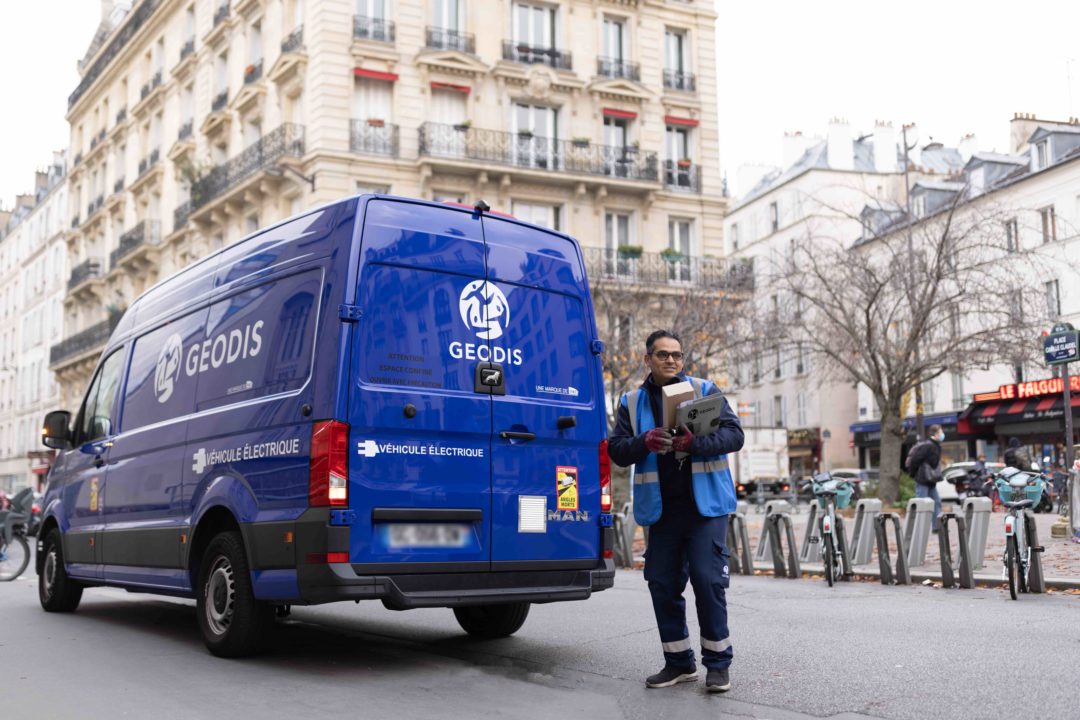Geodis says new emissions cuts will affect all three scopes
3PL pledges to trim greenhouse gas from its buildings, its vehicles, and its contractors

Third party logistics provider (3PL) Geodis today released new emissions reduction targets for its buildings, its vehicle fleets, and its subcontracted transportation services, covering all three “scopes” of carbon footprint measurements.
Specifically, Geodis has set targets of 42% for the reduction of the greenhouse gas (GHG) emissions generated by its fleets of vehicles and its buildings (scopes 1 and 2) and 30% for the carbon intensity of subcontracted transport (scope 3) by 2030, by comparison with the base year 2022.
The approach follows a process of reducing carbon emissions through the application of a science-based approach (the Science Based Targets initiative, or SBTi), in compliance with the goal of the Paris Agreement to limit global warming to 1.5° C. Accordingly, the French company has submitted its plan to the SBTi for approval.
The plan affects the three levels of GHG emissions: Scope 1 (direct GHG emissions generated directly by fixed or mobile assets controlled by the company), Scope 2 (indirect emissions associated with the consumption of electricity, heat or steam), and Scope 3 (all other indirect emissions not included in Scope 2).
To reach its overall goals, Geodis plans to apply various optimization measures—whether they concern routing, loading, or the energy efficiency of vehicles or sites—using the digital tools that are part of the company’s ongoing innovation projects. Geodis also has a tailored approach for each scope of emissions:
First, with regard to its own fleet, the company plans to continue its transition towards alternative vehicles and modes using carbon-free or bio-sourced energies and installing suitable infrastructures for refueling and charging. As far as last-mile deliveries are concerned, GEODIS has already set a target of providing low-carbon delivery services in 40 French cities by the end of 2024.
Second, alongside the transition of its own fleet, Geodis is carrying out measures to reduce GHG emissions on all forms of transport involved in its operations. Its plan entails the use of sustainable marine fuel (SMF) and sustainable aviation fuel (SAF), giving support to customers seeking to optimize their flows and implement appropriate modal shifts, and permanent optimization of the efficiency of the resources employed (the latest generation planes, ships and vehicles; optimized loading and itineraries). This transformation depends on selecting subcontractors on the basis of their practices and commitments, and on supporting small road transport companies to help them carry out their own technological transition.
Third, reducing the carbon emissions of sites assumes a 40% improvement in overall energy efficiency as well as the availability of a minimum of 90% of low-carbon energy. Projects for new sites incorporate the most stringent environmental requirements.
“For many years, GEODIS has been working seriously alongside its customers and partners on measuring and reducing its impact on the climate,” Marie-Christine Lombard, CEO of Geodis, said in a release. “Our new goals will further speed up the process, and they establish GEODIS as one of the most committed companies. This new phase is fully in line with the Group’s ambition to make its lines of business more sustainable and to provide our customers with innovative, sustainable and ethical logistics offerings.”
Related Articles
Copyright ©2024. All Rights ReservedDesign, CMS, Hosting & Web Development :: ePublishing